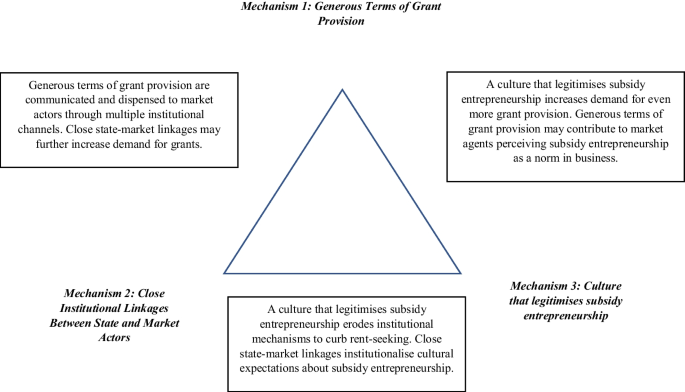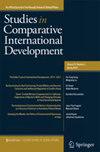新加坡发展型国家的补贴创业与寻租文化
IF 1.2
2区 社会学
Q3 DEVELOPMENT STUDIES
Studies in Comparative International Development
Pub Date : 2023-11-03
DOI:10.1007/s12116-023-09413-z
引用次数: 0
摘要
发展型国家学者认为,通过“嵌入式自治”,国家行动主义可以引导社会走向积极的结果,而不会被私人利益所俘获。本文通过对新加坡此类行动主义的案例研究,对这一说法提出质疑。它认为,新加坡的产业政策不仅可能鼓励了寻租行为,而且这种政策与政府行为者试图创造一种使这种行为合法化的经济文化密切相关。更广泛的含义是,以使命为导向的国家行动主义可能需要广泛的文化工程来促进对相关“使命”的共识,但这种程度的社会渗透也增加了私人利益以不太明显的方式控制国家的风险。本文章由计算机程序翻译,如有差异,请以英文原文为准。

Subsidy Entrepreneurship and a Culture of Rent-Seeking in Singapore’s Developmental State
Abstract Developmental state scholars argue that through “embedded autonomy”, state activism can steer society towards positive outcomes without capture by private interests. This paper questions this claim through a case study of such activism in Singapore. It argues that not only may rent-seeking have been encouraged by Singapore’s use of industrial policy but that such a policy goes hand in hand with attempts by state actors to create an economic culture that legitimises such behaviour. The wider implication drawn is that mission-oriented state activism may require extensive cultural engineering to foster consensus over the relevant “missions”, but this level of social penetration also increases the risk of private interests capturing the state in less visible ways.
求助全文
通过发布文献求助,成功后即可免费获取论文全文。
去求助
来源期刊
CiteScore
4.40
自引率
3.70%
发文量
24
期刊介绍:
Studies in Comparative International Development (SCID) is an interdisciplinary journal that addresses issues concerning political, social, economic, and environmental change in local, national, and international contexts. Among its major emphasis are political and state institutions; the effects of a changing international economy; political-economic models of growth and distribution; and the transformation of social structure and culture.The journal has a tradition of presenting critical and innovative analytical perspectives that challenge prevailing orthodoxies. It publishes original research articles on the developing world and is open to all theoretical and methodical approaches.

 求助内容:
求助内容: 应助结果提醒方式:
应助结果提醒方式:


